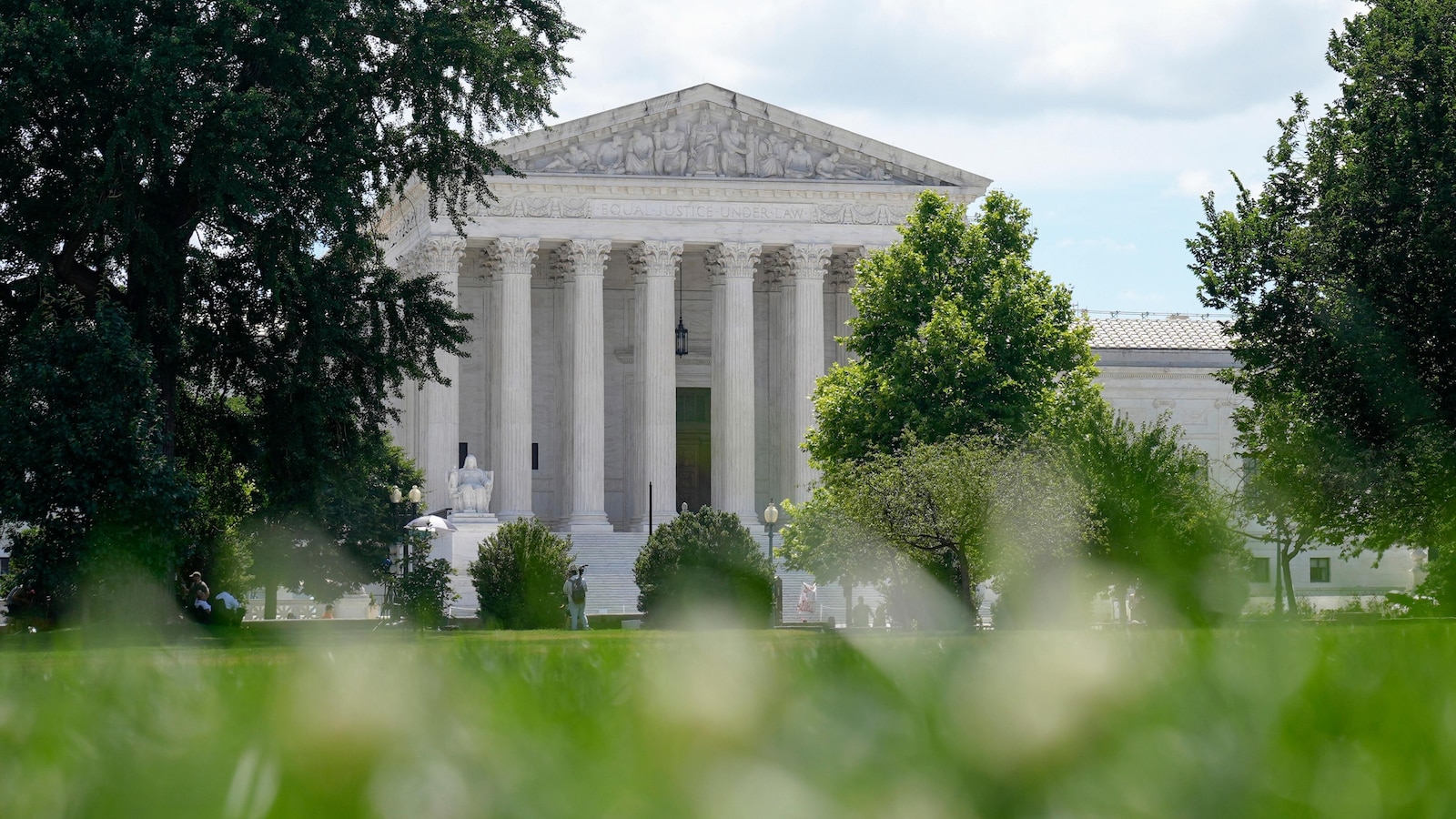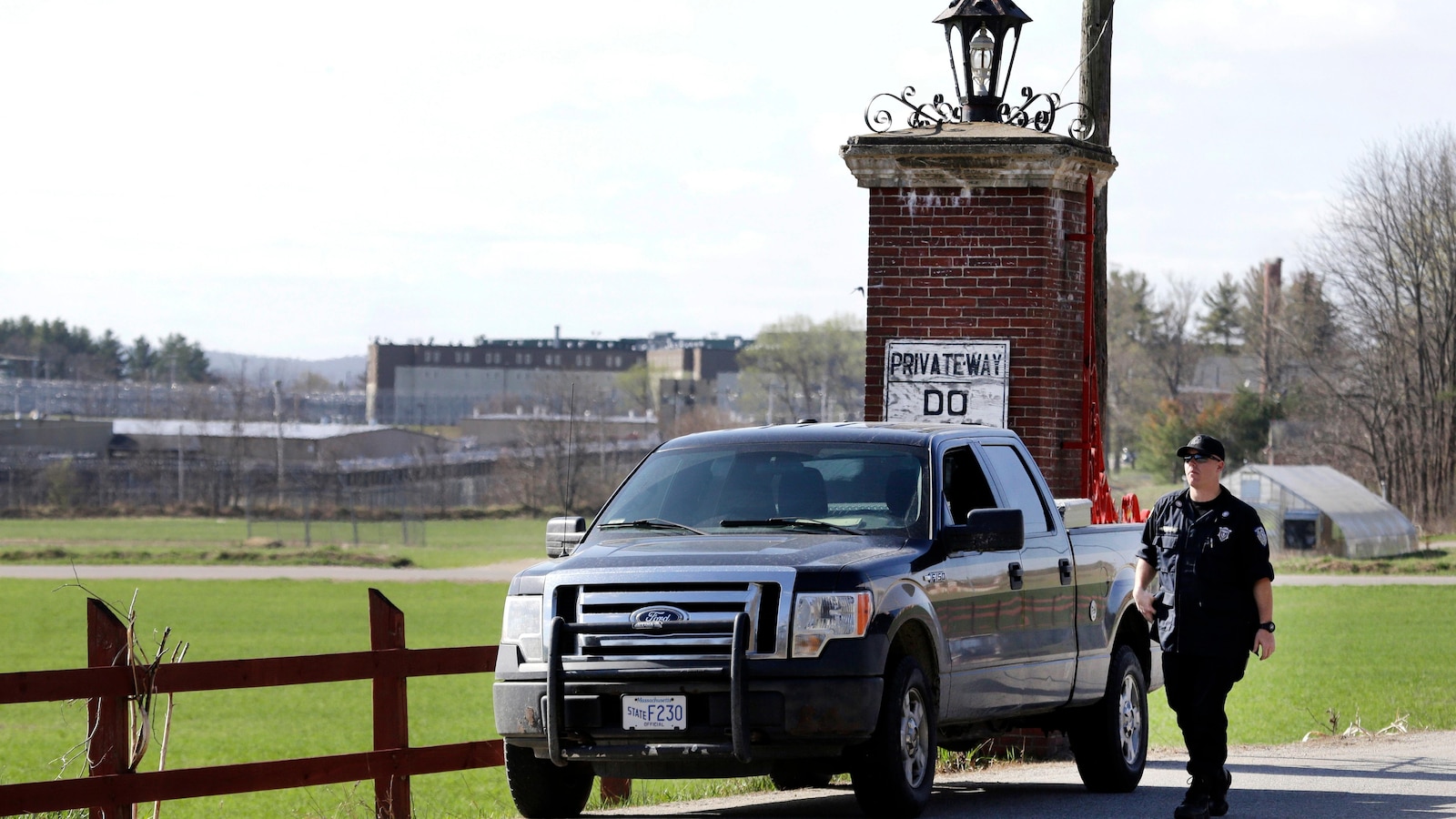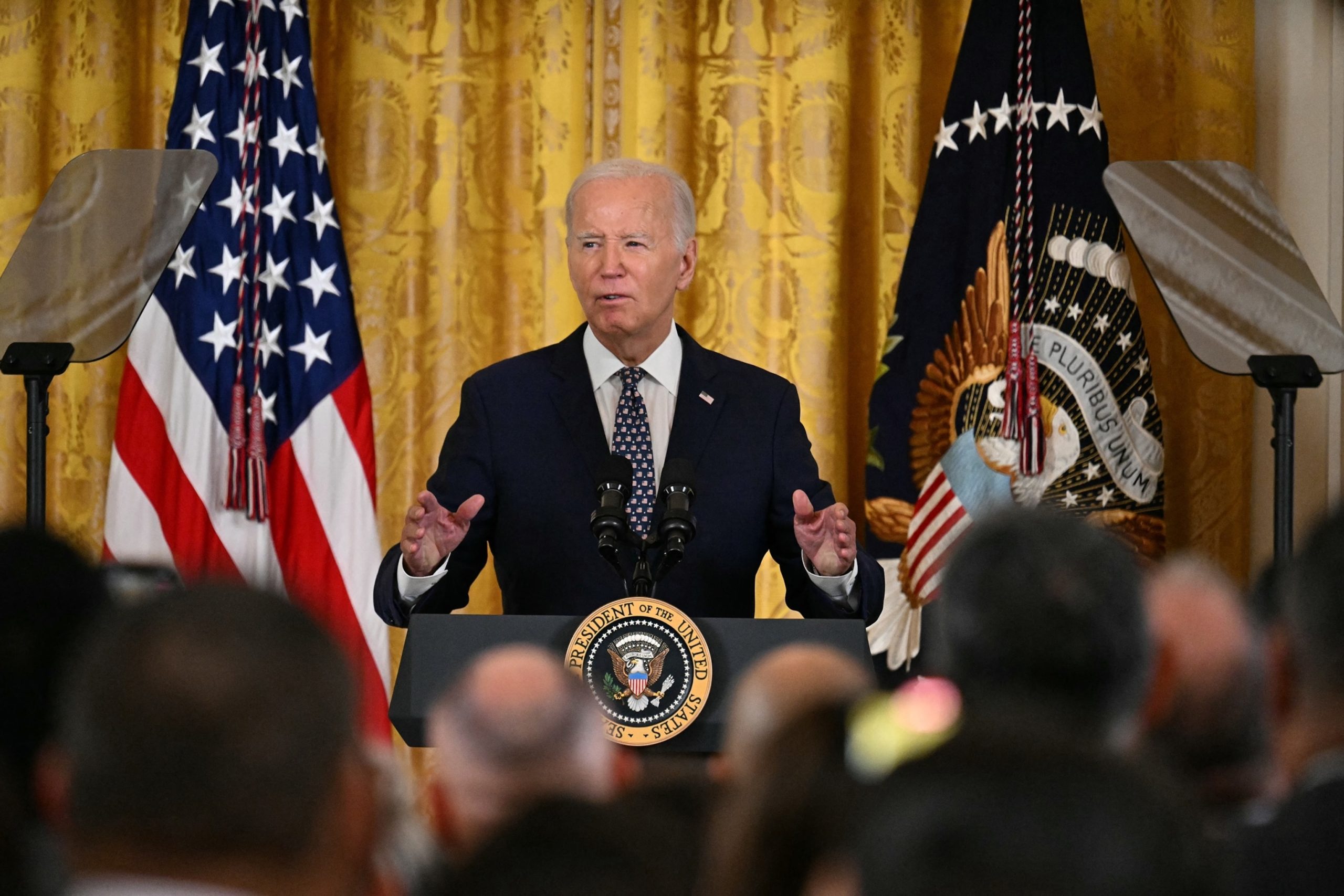
WASHINGTON — WASHINGTON (AP) — The Supreme Court on Monday jumped into the fight over transgender rights, agreeing to hear an appeal from the Biden administration seeking to block state bans on gender-affirming care.
The justices’ action comes as Republican-led states have enacted a variety of restrictions on health care for transgender people, school sports participation, bathroom usage and drag shows. The administration and Democratic-led states have extended protections for transgender people, including a new federal regulation that seeks to protect transgender students.
The case before the high court involves a law in Tennessee that restrict puberty blockers and hormone therapy for transgender minors. The federal appeals court in Cincinnati allowed laws in Tennessee and Kentucky to take effect after they had been blocked by lower courts. (The high court did not act on a separate appeal from Kentucky.)
“Without this Court’s prompt intervention, transgender youth and their families will remain in limbo, uncertain of whether and where they can access needed medical care,” lawyers for the transgender teens in Tennessee told the justices.
Actor Elliot Page, the Oscar-nominated star of “Juno,” “Inception” and “The Umbrella Academy,” was among 57 transgender people who joined a legal filing in support of Supreme Court review.
Arguments will take place in the fall.
Last week, South Carolina became the 25th state to adopt a law restricting or banning gender-affirming medical care for transgender minors, even though such treatments have been available in the United States for more than a decade and are endorsed by major medical associations.
Most of the state restrictions face lawsuits. The justices had previously allowed Idaho to generally enforce its restrictions, after they had been blocked by lower courts.
At least 24 states have laws barring transgender women and girls from competing in certain women’s or girls’ sports competitions. At least 11 states have adopted laws barring transgender girls and women from girls’ and women’s bathrooms at public schools, and in some cases other government facilities.
The nation’s highest court has only rarely taken up transgender issues. In 2020, the justices ruled that a landmark civil rights law protects gay, lesbian and transgender people from discrimination in employment.
In 2016, the court had agreed to take up the case of a transgender student, backed by the Obama administration, who was barred from using the boys’ bathroom in his Virginia high school. But the court dropped the case after a directive advising schools to allow students to use the bathroom of their chosen gender, not biological birth, was scrapped in the early months of the Trump administration. The directive had been a key part of an appeals court ruling in favor of the student, Gavin Grimm.
In 2021, the justices declined to get involved in Grimm’s case after the appeals court again ruled in his favor. At the time, Justices Samuel Alito and Clarence Thomas noted they would have taken up the school board’s appeal.
___
Follow the AP’s coverage of the U.S. Supreme Court at https://apnews.com/hub/us-supreme-court.
The Supreme Court has agreed to review state bans on gender-affirming care for minors, a decision that could have far-reaching implications for transgender youth across the country. The case, which centers on laws in Arkansas and Tennessee that prohibit doctors from providing gender-affirming treatments to minors, has sparked a heated debate over the rights of transgender individuals and the role of the government in regulating medical care.
Gender-affirming care, also known as gender transition or gender reassignment therapy, includes a range of treatments such as hormone therapy and surgery that help transgender individuals align their physical characteristics with their gender identity. These treatments are widely recognized by medical professionals as safe and effective ways to alleviate gender dysphoria, a condition in which a person’s gender identity does not align with their assigned sex at birth.
However, some conservative lawmakers argue that minors are not capable of making informed decisions about their gender identity and that gender-affirming care can cause irreversible harm. In response, several states have passed laws banning doctors from providing these treatments to minors, citing concerns about the long-term effects on physical and mental health.
The Supreme Court’s decision to review these bans comes at a time when transgender rights are increasingly under attack in the United States. In recent years, there has been a surge in legislation targeting transgender individuals, including bills that seek to restrict access to public spaces, limit participation in sports, and deny healthcare services.
Advocates for transgender rights argue that these laws are discriminatory and harmful to transgender youth, who already face high rates of bullying, discrimination, and mental health issues. They point to research showing that gender-affirming care can significantly improve the well-being and quality of life of transgender individuals, reducing rates of depression, anxiety, and suicide.
The outcome of the Supreme Court case will have significant implications for the rights of transgender youth and the ability of doctors to provide medically necessary care. It will also set a precedent for how the government can regulate healthcare decisions for minors and potentially impact other areas of reproductive and LGBTQ rights.
As the case moves forward, it is crucial for lawmakers, medical professionals, and advocates to prioritize the well-being and autonomy of transgender youth. Ensuring access to gender-affirming care is not only a matter of medical necessity but also a fundamental human right that should be protected and upheld by the highest court in the land.


